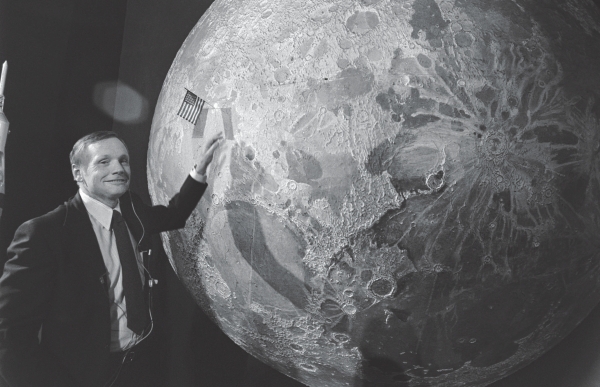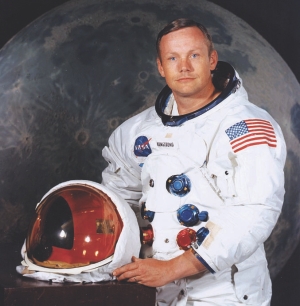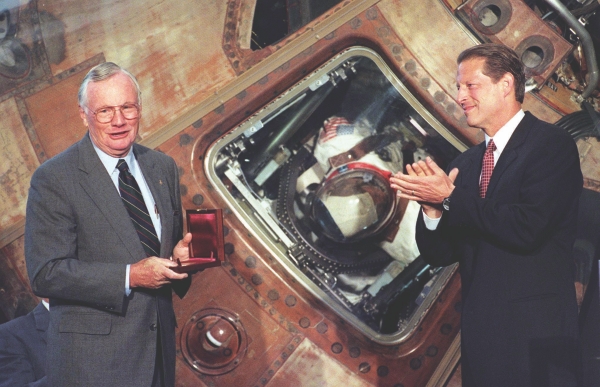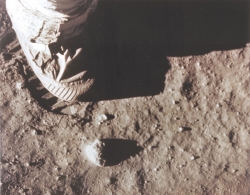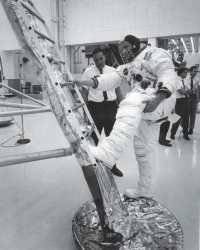| Home - Back Issues - The Team - Contact Us |
 |
| Volume 11 |Issue 34| August 31, 2012 | |
|
|
Tribute
Man on the Moon Soraya Auer
On 20 July 1969, Neil Armstrong became the first man to walk on the moon and arguably the most famous man in the Universe. When asked how he felt that day, he said, “very, very small.” Despite this, Armstrong, who died on 25 August aged 82, returned to Earth with his fellow Apollo 11 astronauts a hero. Born on 5 August 1930 and raised in Ohio, Armstrong took his first flight aged six with his father and formed a lifelong passion for flying. In 1947, he studied aeronautical engineering on a navy scholarship, but two years later the Navy called on him for active duty in the Korean War. He flew in 78 combat missions, was shot down once and received three medals for his military service. In 1952, he returned to his studies and completed his BSc and an MSc in aerospace engineering. In 1955, he became a civilian research pilot for the National Advisory Committee for Aeronautics (Naca), the precursor of the National Aeronautics and Space Administration (Nasa). He later became an aeronautical research scientist and was a test pilot on many pioneering high-speed aircraft, including the 4,000mph X-15. In 1962, he was one of nine test pilots chosen by Nasa for its second astronaut-training programme.
Four years later, Armstrong made his successful recovery of the Gemini 8 spacecraft in a situation that, if misjudged, could have easily resulted in the death of the crew. This achievement was invaluable in helping Nasa meet the target set by President Kennedy in 1961, for the USA to have, as a national goal, a manned landing on the moon by the end of the decade. In 1969, an estimated half a billion people were glued to the grainy black-and-white broadcast of the epic moon landing. Armstrong and Edwin “Buzz” Aldrin spent close to 22 hours on the moon's surface before rejoining Michael Collins, who had been orbiting the moon alone in the Columbia command module. Back on earth, the crew received global adulation and honour, but after the initial publicity round, Armstrong refused to cash in on his celebrity. His family aptly praised him as a “reluctant hero”, in a press statement after his death, for Armstrong later lived in the seclusion of his Ohio farmhouse, taught engineering at the University of Cincinnati and went into business. On Saturday, the 82-year-old space veteran, who once described himself as a “nerdy engineer”, passed away from complications following a heart surgery. Despite how rarely he appeared before the press or public, Neil Armstrong inspired generations to reach for the stars and will be remembered for achieving one of the great milestones of human discovery. Just like his legendary words, “one small step for [a] man, one giant leap for mankind”, he will be immortalised in history. |
||||||||||||
Copyright
(R) thedailystar.net 2012 |
